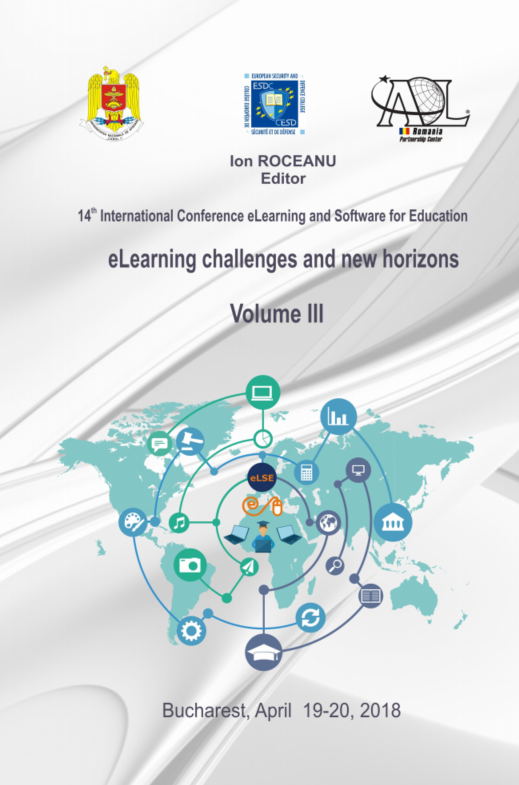Students' Digital Competencies, Related Attitudes and Self Directed Learning
Students' Digital Competencies, Related Attitudes and Self Directed Learning
Author(s): Daniela Popa, Ioana Roxana TopalăSubject(s): Social Sciences, Education
Published by: Carol I National Defence University Publishing House
Keywords: Digital literacy; ICT; higher education; self-directed learning; attitude;
Summary/Abstract: Digital native students are a challenge for some teachers. In Romanian educational context, not all teachers allow students to use the technology freely and independently in order to handle learning tasks. This study aims to investigate the correlations between students’ self-perceived digital competencies, relevant related attitudes and their level of self-direction in learning, alongside with their perception of how teachers relate to the use of technology for the educational process (teaching & learning). For this study, we used a cross-sectional design, with data collection in multiple sequences, from a non-randomized sample of 200 undergraduate students, distributed into 2 groups (technical and non-technical specializations), with no intended intervention. The methods used in collecting data were online survey (using questionnaires) and focus-group interviews. The results indicate that students’ level of self-directed learning correlates with the frequency of using digital tools for learning. Furthermore, students that are prone to a high frequency and more complex usage of technology due to their specialization, are more likely to report a more favorable attitude towards digitalized learning than students majoring in social sciences. Also, the more self-directed the students are in their learning, the higher they score on their self-efficiency level. The results show that the higher the level of self-efficiency is, the better their level of self-perceived digital competencies is. We also observed that their level of self-perceived digital competencies could be associated with their self-efficiency level. Moreover, seems like a higher level of learning satisfaction appears in students whose teachers allow them to decide independently about the frequency and modality of technology usage in their learning.
Journal: Conference proceedings of »eLearning and Software for Education« (eLSE)
- Issue Year: 14/2018
- Issue No: 03
- Page Range: 090-095
- Page Count: 6
- Language: English

